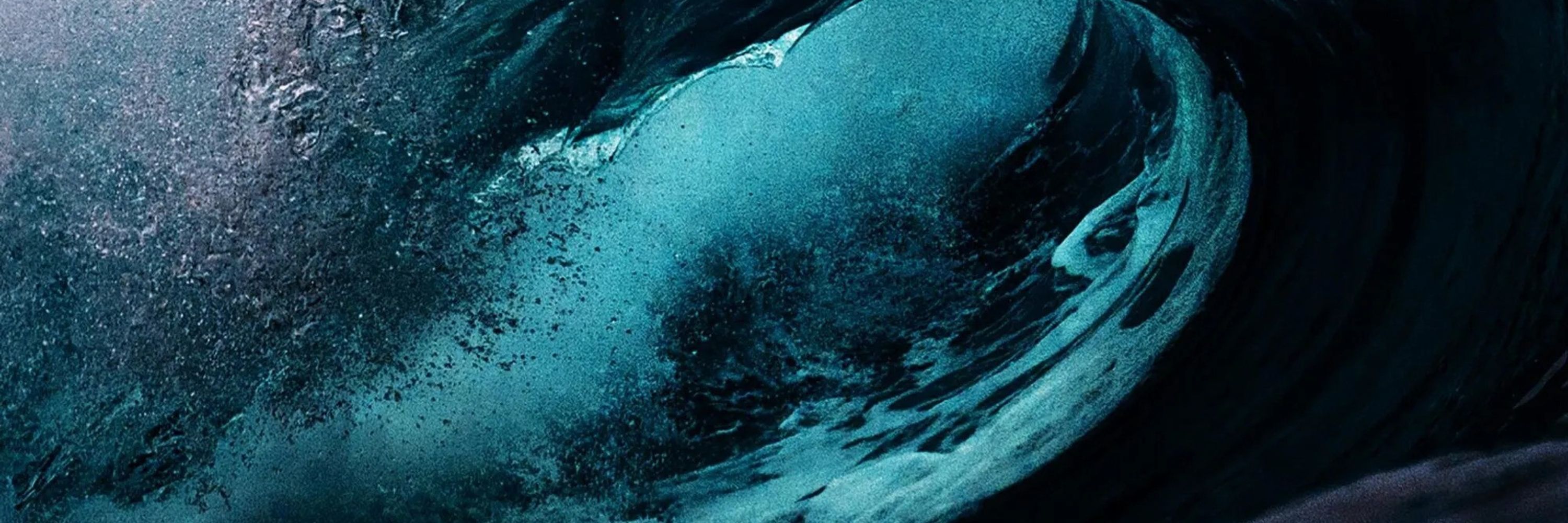

The International Programme on the State of the Ocean (IPSO) brings together science, communications, policy, and legal disciplines to drive ocean solutions.
17 years of observation warn that continued freshening will amplify biogeochemical effects on air–sea carbon exchange.

17 years of observation warn that continued freshening will amplify biogeochemical effects on air–sea carbon exchange.
🔗 Learn more and add your support:
👉 stateoftheocean.org/seamountspro...

🔗 Learn more and add your support:
👉 stateoftheocean.org/seamountspro...
#Malaysia 🇲🇾
#ClimateEmergency

#Malaysia 🇲🇾
#ClimateEmergency
Authors suggest that shellfish aquaculture should be considered within marine carbon removal (mCDR) and blue carbon frameworks for #ClimateChange mitigation.
https://www.pnas.org/doi/10.1073/pnas.2504004122

Authors suggest that shellfish aquaculture should be considered within marine carbon removal (mCDR) and blue carbon frameworks for #ClimateChange mitigation.
https://www.pnas.org/doi/10.1073/pnas.2504004122
New study from @scrippsocean.bsky.social is the first to integrate the ocean’s climate impacts.
It estimates nearly $2 trillion in annual ocean-related damages currently missed by models.

New study from @scrippsocean.bsky.social is the first to integrate the ocean’s climate impacts.
It estimates nearly $2 trillion in annual ocean-related damages currently missed by models.
This study shows how moving beyond bleak narratives can unlock new ways of thinking about #CoralReef conservation.
Visioning exercises may help inspire action and guide more just and sustainable reef futures.

This study shows how moving beyond bleak narratives can unlock new ways of thinking about #CoralReef conservation.
Visioning exercises may help inspire action and guide more just and sustainable reef futures.
@ec.europa.eu has launched a public call for evidence to help shape the #EUOceanAct, a proposed law set for adoption in 2026.
Deadline: 9 February 2026

@ec.europa.eu has launched a public call for evidence to help shape the #EUOceanAct, a proposed law set for adoption in 2026.
Deadline: 9 February 2026
According to @wmo-global.bsky.social, 33% of the global ocean area ranked among its historical top three warmest conditions, despite cooling from La Niña.

According to @wmo-global.bsky.social, 33% of the global ocean area ranked among its historical top three warmest conditions, despite cooling from La Niña.
Because climate models underestimate this shift, future impacts on weather, ecosystems and water resources may be greater than predicted.

Because climate models underestimate this shift, future impacts on weather, ecosystems and water resources may be greater than predicted.
@annamet.bsky.social
https://onlinelibrary.wiley.com/doi/10.1111/gcb.70407

@annamet.bsky.social
https://onlinelibrary.wiley.com/doi/10.1111/gcb.70407
It was marked by extreme heat, wildfires, and storms.
Other warning signs:
🌍 Polar temperature anomalies, with a record high in Antarctica
🌊 Global sea surface temperatures stayed historically high
It was marked by extreme heat, wildfires, and storms.
Other warning signs:
🌍 Polar temperature anomalies, with a record high in Antarctica
🌊 Global sea surface temperatures stayed historically high
However, scientists warn that existing legal frameworks, weak enforcement and competing national interests may limit its impact in one of the ocean’s most politically complex regions.
@annasoer.bsky.social

However, scientists warn that existing legal frameworks, weak enforcement and competing national interests may limit its impact in one of the ocean’s most politically complex regions.
@annasoer.bsky.social
www.theguardian.com/environment/...

www.theguardian.com/environment/...
Share your views on the future of marine knowledge and help shape this initiative crucial for everyone relying on the ocean.
#EUHaveYourSay until 27 February 2026 → link.europa.eu/hwcfJv
#EUOceanPact

Share your views on the future of marine knowledge and help shape this initiative crucial for everyone relying on the ocean.
#EUHaveYourSay until 27 February 2026 → link.europa.eu/hwcfJv
#EUOceanPact
The study shows these shifts had lasting ecological and social consequences, from altering food webs to fisheries productivity.
The study shows these shifts had lasting ecological and social consequences, from altering food webs to fisheries productivity.

Research from 30 global institutions warns of intensifying climate impacts, such as #SeaLevelRise, extreme weather and marine ecosystem stress, as a result. @sciam.bsky.social

Research from 30 global institutions warns of intensifying climate impacts, such as #SeaLevelRise, extreme weather and marine ecosystem stress, as a result. @sciam.bsky.social
The #HighSeasTreaty is now in force, a testament to the leadership of governments, civil society, Indigenous leaders, scientists & many more ocean champions everywhere. #60toGlobal @highseasalliance.bsky.social

The #HighSeasTreaty is now in force, a testament to the leadership of governments, civil society, Indigenous leaders, scientists & many more ocean champions everywhere. #60toGlobal @highseasalliance.bsky.social
Deadline for submissions is 6th March 2026, 15:00 CET.
Submit your abstract: https://www.icos-cp.eu/news-and-events/news/call-abstracts-icos-science-conference-2026-now-open
#ICOS2026SC

Deadline for submissions is 6th March 2026, 15:00 CET.
Submit your abstract: https://www.icos-cp.eu/news-and-events/news/call-abstracts-icos-science-conference-2026-now-open
#ICOS2026SC
Slow government responses and limited international attention deepen the crisis for communities least responsible for #ClimateChange. @rochmyaningsih.bsky.social

Slow government responses and limited international attention deepen the crisis for communities least responsible for #ClimateChange. @rochmyaningsih.bsky.social
Summary of month from @copernicusecmwf.bsky.social: climate.copernicus.eu/surface-air-... 🌊🧪⚒️



Summary of month from @copernicusecmwf.bsky.social: climate.copernicus.eu/surface-air-... 🌊🧪⚒️
With less time to recover, another prolonged warming phase could trigger extensive collapse across many regions.
#ClimateChange #CoralReefs
@pml.ac.uk

With less time to recover, another prolonged warming phase could trigger extensive collapse across many regions.
#ClimateChange #CoralReefs
@pml.ac.uk
If you are interested, send your expression of interest by Jan 30
👉 https://www.unesco.org/en/articles/call-expressions-interest-world-day-glaciers-2026

If you are interested, send your expression of interest by Jan 30
👉 https://www.unesco.org/en/articles/call-expressions-interest-world-day-glaciers-2026
@colinmorice.bsky.social @edhawkins.org

@colinmorice.bsky.social @edhawkins.org
Interested in the impacts of AMOC weakening?
New session alert! 🚨🌊🧪
ITS2.5/CL0.5: "AMOC impacts: physical, biogeochemical, and societal"
Check out our interdisciplinary session description & submit your abstract here: meetingorganizer.copernicus.org/EGU26/sessio...

Interested in the impacts of AMOC weakening?
New session alert! 🚨🌊🧪
ITS2.5/CL0.5: "AMOC impacts: physical, biogeochemical, and societal"
Check out our interdisciplinary session description & submit your abstract here: meetingorganizer.copernicus.org/EGU26/sessio...

